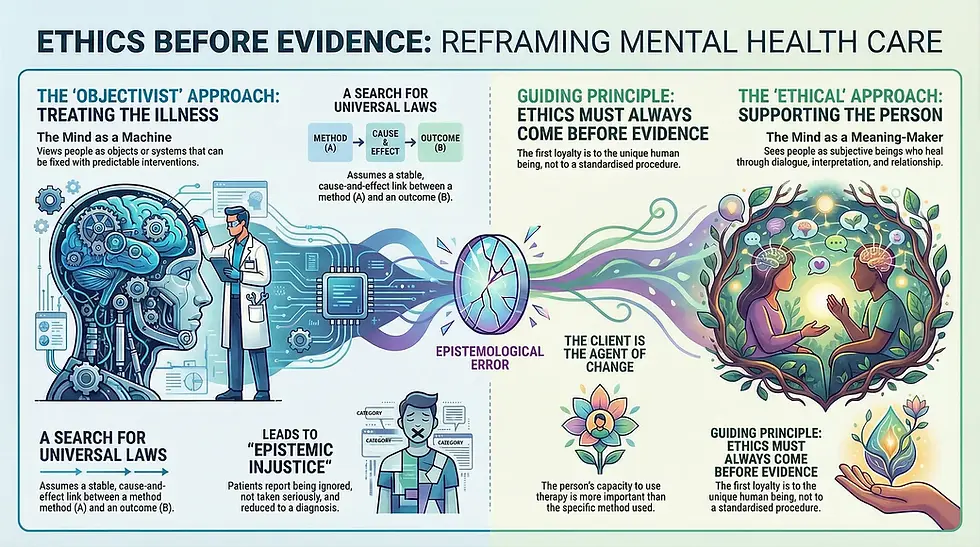Can AI Become Self Aware?
- Charmayne Paul

- Feb 22, 2022
- 3 min read
Updated: Aug 2, 2024
Grizwald Grim is the YouTube channel I visit for my daily mental health dose of thriving community, meaning making and dynamic dialogues. Last week Griz hosted a ‘fringe encounter’ with Hyon Schu, an active community member and M. Phil candidate.
Highly recommended viewing (40 mins), for students learning about human agency in social cog theory, or the philosophy of AI and human interaction. Be prepared for 'savings throws'~ it's for your own protection ~:-)
TL;DR
Scroll down for timestamps (also a pinned comment on the vid link)
The lively discussion begins with Schu’s summary of his thesis topic: Potential outcomes of tech-human interactions. The philosophy of artificial intelligence is often a topic in cog sci classes, usually in the week when readings focus on consciousness. I like Schu’s perspective that AI is not positioned to ‘take over the world’ (i.e., self aware AI), nor likely to be. Though, as Griz points out, vid interviews of Elon Musk present a less than hopeful outcome…I love Terminator, and King’s Maximum Overdrive scared me to bits as a kid, however, I’ve never taken the likelihood of AI, matrix-style, seriously. Maybe an avoidance mechanism on my part, but AI consciousness philosophy is not something I sit down and reflect on much. This point of difference during the interview brought the conversation around defining human agency. Which I found especially interesting, given the agency Bandura readings I’ve encountered in academia.
What is your understanding of human agency?
Bandura (1989) wrote about the structure and function of agency as explained by his model of triadic reciprocal causation (determinism). See Figure 1, for an illustration of the interplay between cognition (self-reflective, vicarious, and self-regulatory), the environment (social and social context), and subsequent behaviour.

Figure 1. [Adapted from “Social Cognitive Theory of Organizational Management,” by R. Wood and A. Bandura, 1989, Academy of Management Review, 14(3), p. 362. In Brabham (1018, p. 18)]
Overall, I find Bandura's model lacking in account of the physical environment... but that’s for another post. Also, Powers (1991) argues that Bandura replicated, for the most part, his 1973 model of control theory. I really enjoy the 'tennis-match' commentary that can occur between authors. Popcorn worthy. Another topic for another post... To answer my question above, I think we have agency (thinking, feeling, and acting via our own free will) to a degree…there is also biology, as well as physical, social and physical environmental influences…and the unconsciousness … taking turns to ‘drive'. Ultimately, Bandura’s model (and Power's) provides us with one way to think about free will vs. determinism. Moreover, Griz and Schu offer others, anecdotal and academic respectively. Their discussion about ‘can AI be conscious?’ and the tangents focused on 'what is it to be human?', is a thought-provoking dialogue for psychology students imo. Enjoy! ~ Charmayne
Timestamps 0:00 Heightened experience of being
4:56 OBS tute
5:35 Dialogos begins~
7:20 Hyon's academic Adventure in M. Phil.
8:15 agent:arena
10:40 tech-human interactions critique
13:20 human agency
13:29 metaphor wrestling
14:25 consciousness and the role of time
17:38 Dream based
18:35 defining the veil of separation of embodiment
20:10 thought experiment
20:53 Agree~ language translation
20:55 Relationships to sail the darkness
21:30 polarities and actuality
23:30 is it an issue when this is that?
does tech and language erode distinctions...thus relationships, thus...they bridge can be strengthened? If yes, then Agency...maybe ~:-)
24:40 great question! "Tell me about your must..."
25:15 Griz channeling spirits re. RFDs
29:01 Agency as a construct, on the mat
31:50 Hyon considering Angel wrestling
33:05 saved by throws
34:47 midwife song interruptus ...
35:10 relationships as arcs; whence do they venn?
38:40 consciousness structure + function
My Question: When the Angel said 'conquer' did he use the term as we do nowadays...?
References
Bandura, A. (1989). Human agency in social cognitive theory. American Psychologist, 44(9), 1175-1184.
https://doi.org/10.1037/0003-066X.44.9.1175
Brabham, D. D. (2018). Senior nursing students' knowledge, attitudes, and perceived competency about older adults. [Doctoral Dissertation, Nova Southeastern University]. Nova. https://nsuworks.nova.edu/hpd_con_stuetd/48.
Powers, W. T. (1991). Commentary on Bandura's "Human Agency". American Psychologist, 46(2), 151–153. https://doi.org/10.1037/0003-066X.46.2.151.b
























Comments